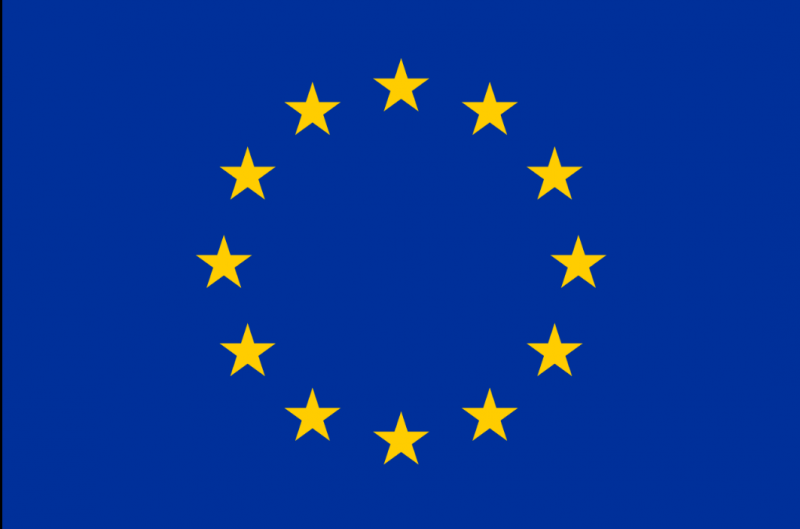
EU: The European Union tried to stay out of contention between the US and China over Nancy Pelosi's island visit last week, with European lawmakers vowing to move forward with planned visits to Taiwan.
According to Marie-Pierre Védren, a French member of the European Parliament, the storm surrounding the US House speaker's visit will have no effect on the trade committee's plans to visit Taiwan in December.
"These reactions will not change our plans, I hope to travel as planned," she said.
Separately, a delegation of German legislators has announced that they will travel in October.
Lithuania's Deputy Minister of Transport and Communications, Agne Viukevit, led a delegation that visited this week to discuss building sister-city ties between Kaohsiung, a city in southern Taiwan, and Klaipda, a port in Lithuania. , which was once considered a potential centre. Beijing's Belt and Road Initiative.
Chinese Foreign Ministry spokesman Wang Wenbin condemned the visit on Thursday, saying it was a "deliberate violation of China's sovereignty and gross interference in China's internal affairs."
We urge the relevant authorities, he continued, "not to continue down this wrong path and, more importantly, not to play the pawn of Taiwan's independence and anti-China forces."
Lithuania intends to set up a trade office in Taipei next month, but is adamant that it does not signal a departure from the EU's one-China policy, which recognizes Beijing as China's only legitimate government .
Despite warnings from Chinese embassies in Europe that travel to Taiwan is not allowed, there has been a flurry of activity.
Chinese Foreign Minister Wang Yi issued a warning to politicians in other countries on Thursday, saying doing so would "seriously undermine the political foundations of engaging with China."
The European Union and national governments have so far reacted slowly to Pelosi's visit and the unprecedented Chinese military activity that followed. The European Union and its members are being consumed by the Russian invasion of Ukraine and decimated by an annual holiday exodus that threatens foreign policy.
Wedren, a supporter of French President Emmanuel Macron, said: "If we hadn't had our position in Ukraine, it would have been different, but we focus so much on that - it has direct consequences on our borders."
European Union foreign policy chief Josep Borrell said on Friday that the launch of ballistic missiles in Beijing's waters is what Japan claims is a part of its exclusive economic zone and that Taiwan is "highly worrying developments that cause instability and increased risk". Huh."
Because the two sides cannot agree on borders, China, which has long made overlapping claims with Japan, claims that there is no EEZ in the water where the rocket landed.
When the debate began, Borrell and some of his top Asia advisers were in Cambodia. People familiar with the situation say it is unlikely he would have been physically involved if he hadn't already been in the field.
The G7 statement from two days ago, which was co-signed by the foreign ministers of France, Germany, Italy and Japan, as well as the representative of the European Union, echoed in his speech.
Brussels officials, however, privately admit that they do not see any benefit in intervening too much in such a delicate matter.
The US and China are widely believed to be involved in the current standoff. Brussels is keeping a close eye on the situation for any supply chain disruptions, but has not found any yet.
The EU's position is in contrast to the United Kingdom, whose Foreign Secretary Liz Truss claimed that on Wednesday, Chinese ambassador Zheng Zheguang was called to the Foreign Office "to explain her country's actions".
Beijing still intends to use force to capture Taiwan because it sees it as a separatist province of China. Although most nations, including members of the European Union, do not recognize Taiwan as an independent state, Western governments oppose any attempt to forcibly annex the island.
Analysts claimed that recent events demonstrated the need for the EU to prepare for potential regional shocks.
Alicia García Herrero, chief economist for Asia-Pacific at French bank Natixis, said European countries would have to find a way to balance concerns about Taiwan and Ukraine when dealing with China.
According to him, “I think [the EU] puts both events together – and they look at how Russia backs China, and how China uses all kinds of emerging markets to support its one-China policy.” and their interpretation - they will start to realize that they have two fronts."
According to Antoine Bondaz, director of the Taiwan program at French think tank Fondation Pure la Recherche Strategic, the EU should find practical ways to cooperate with Taipei while avoiding "politically Sensitive stuff."
He urged the EU to sign up for the Global Cooperation and Training Framework, a forum set up by the US and Taiwan in 2015 to host workshops for public servants and civil society experts.
China is trying to increase the cost of doing business with Taiwan by putting pressure on Western countries. Therefore, let's focus more on practical, substantive cooperation with Taiwan and less on obvious, politically sensitive issues.
Ukraine to Implement 107 Regulations Under Association Agreement
Russian coal imports prohibited by the EU after the transition ends
Ukraine seeks Germany's help in securing 8 billion euros from the EU